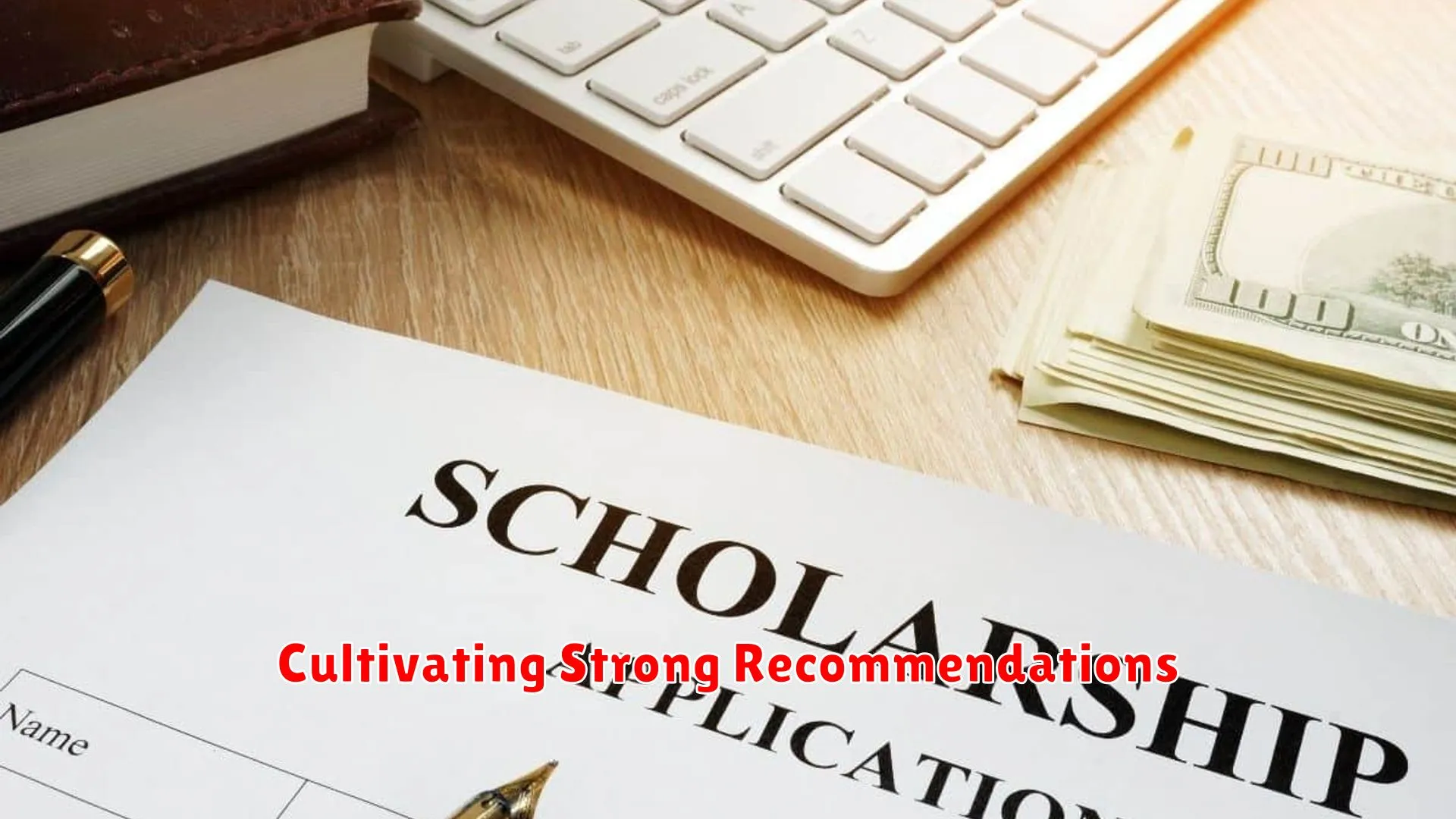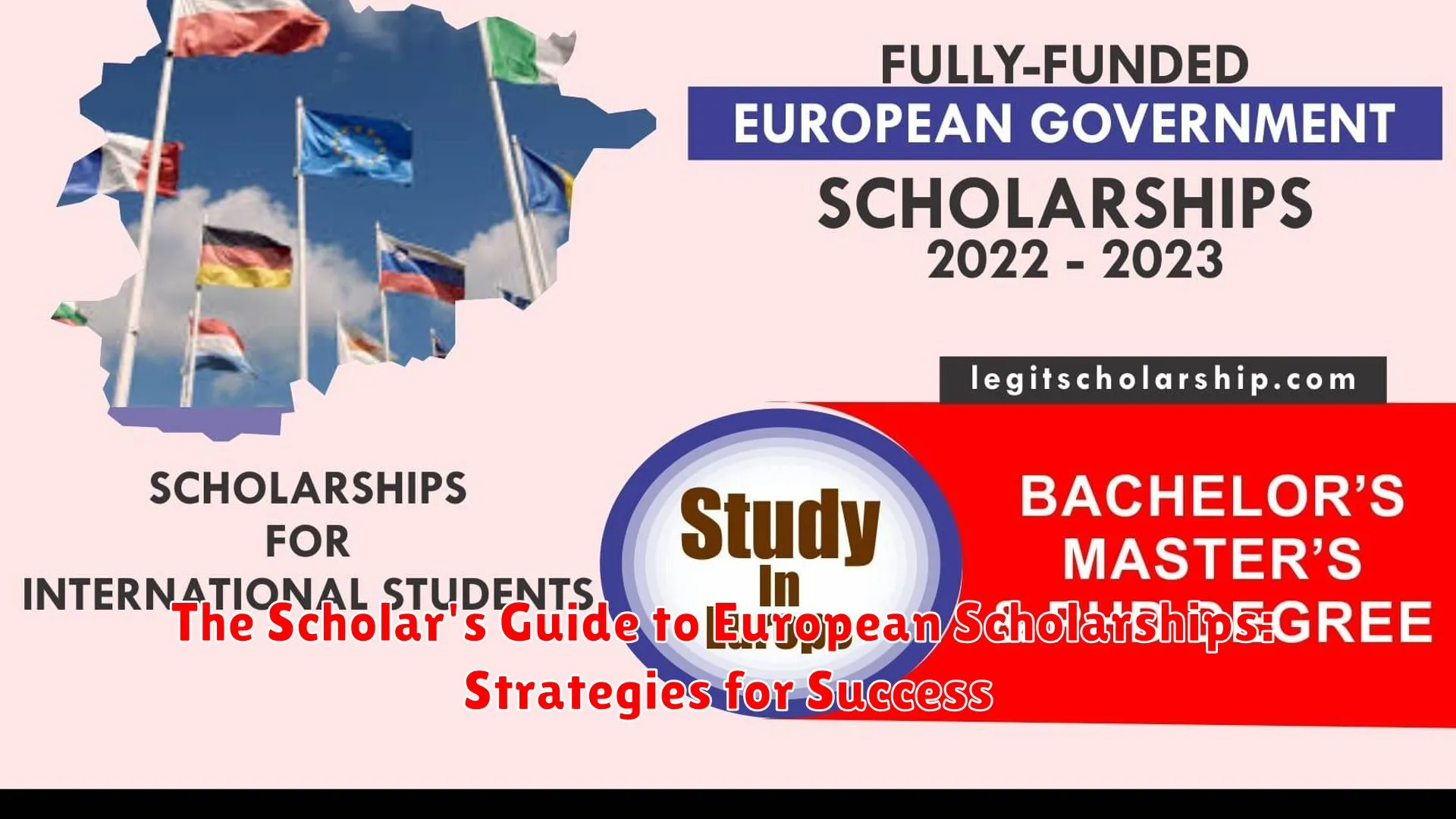Unlocking the doors to European scholarships can be a game-changer for scholars worldwide. In “The Scholar’s Guide to European Scholarships: Strategies for Success,” discover expert tips and strategies to navigate the competitive landscape of funding opportunities.
Developing a Scholarship Strategy

When pursuing European scholarships, having a well-thought-out strategy is key to increasing your chances of success. Here are some practical steps to develop a successful scholarship strategy:
1. Research Extensively
Start by researching and identifying different scholarship opportunities available in European countries. Look into various organizations, universities, and government programs that offer scholarships to international students.
2. Understand Eligibility Criteria
Thoroughly review the eligibility criteria for each scholarship to ensure that you meet the requirements. Pay attention to factors such as academic performance, language proficiency, and any specific qualifications needed.
3. Tailor Your Applications
Customize your scholarship applications to match the requirements of each specific scholarship. Highlight your achievements, experiences, and goals that align with the values and objectives of the scholarship provider.
4. Seek Guidance
Reach out to academic advisors, mentors, or alumni who have experience with European scholarships. They can provide valuable insights, advice, and feedback on your scholarship applications.
5. Prepare Strong Personal Statements
Craft compelling personal statements that showcase your strengths, aspirations, and reasons for applying for the scholarship. Tailor each statement to demonstrate your fit with the scholarship criteria.
6. Meet Deadlines
Be diligent in meeting all application deadlines to avoid missing out on valuable opportunities. Create a timeline for submission and gather all required documents well in advance.
7. Follow Up
After submitting your applications, consider following up with the scholarship committee to express your continued interest and inquire about the selection timeline. This proactive approach demonstrates your dedication and enthusiasm.
Tips for Academic Excellence

In pursuit of European scholarships, achieving academic excellence is crucial. Here are essential tips to help scholars enhance their chances of success:
1. Research Thoroughly
Begin by researching the available European scholarships meticulously. Understand the eligibility criteria, application process, deadlines, and required documents for each scholarship.
2. Develop a Strong Study Routine
Establish a consistent study schedule that allows for dedicated learning time each day. Set specific goals for your studies and stay organized to maximize productivity.
3. Seek Mentorship and Guidance
Connect with professors, advisors, or alumni experienced in securing European scholarships. Their insights and advice can significantly benefit your scholarship application process.
4. Enhance Language Skills
Many European scholarships require proficiency in a specific language. Improve your language skills through classes, online resources, or language exchange programs to meet the language requirements.
5. Engage in Extracurricular Activities
Participate in extracurricular activities that showcase your leadership skills, community involvement, and interests outside of academics. Active involvement can strengthen your scholarship application.
6. Write Exceptional Essays
Craft compelling and well-written essays that highlight your achievements, goals, and aspirations. Tailor each essay to the specific scholarship program you are applying for to demonstrate your interest and fit.
7. Request Strong Letters of Recommendation
Choose recommenders who know you well academically and can attest to your strengths and capabilities. Provide them with relevant information to help them write impactful letters of recommendation.
Leveraging Extracurricular Activities

Extracurricular activities play a crucial role in the success of securing European scholarships for scholars. These activities extend beyond academics and provide a platform for students to showcase their diverse skill sets and interests. Here are some strategies to leverage extracurricular activities effectively:
1. Leadership Positions
Assuming leadership roles in clubs or student organizations demonstrates your ability to take initiative, collaborate with others, and manage responsibilities. Admissions committees for scholarships often value these leadership qualities.
2. Community Involvement
Engaging in community service projects not only shows your commitment to making a positive impact but also highlights your empathy and dedication outside of academia. These experiences can set you apart from other applicants.
3. Participation in Competitions
Participating in competitions related to your field of study or interests can demonstrate your passion and expertise. Winning or even showcasing strong performance in such competitions can enhance your scholarship application.
4. Cultural Exchange Programs
Participating in cultural exchange programs, studying abroad, or being involved in international initiatives can broaden your perspective and demonstrate your adaptability to diverse environments. These experiences are highly valued in scholarship evaluations.
By strategically incorporating these extracurricular activities into your academic journey, you can enhance your scholarship applications and increase your chances of securing funding for your education in Europe.
Cultivating Strong Recommendations

When pursuing European scholarships, one crucial aspect that can significantly boost your application is obtaining strong recommendations. These recommendations are a testament to your academic accomplishments, character, and potential for success in your chosen field of study. Here are some strategies to cultivate strong recommendations:
1. Build Strong Relationships
Develop meaningful connections with professors, mentors, and supervisors who can provide insightful and positive recommendations. Engage actively in class discussions, seek academic guidance, and participate in research projects or extracurricular activities to establish strong rapport.
2. Provide Relevant Information
When requesting recommendations, provide the recommenders with essential details about your academic achievements, goals, and the specific scholarship you are applying for. This information will help them tailor their recommendations to highlight your strengths effectively.
3. Offer Guidance
Offer recommenders guidance by discussing your academic interests, career aspirations, and the qualities you would like them to emphasize in their recommendations. Providing them with prompts or a clear direction can help ensure that the recommendations align with the scholarship requirements.
4. Follow Up and Express Gratitude
After receiving recommendations, follow up with a thank-you note expressing appreciation for their time and support. Keeping in touch with your recommenders can foster strong relationships for future endeavors and demonstrate your gratitude for their assistance.
By cultivating strong recommendations through personalized interactions, providing relevant information, offering guidance, and expressing gratitude, you can enhance your European scholarship applications and increase your chances of success in securing funding for your academic pursuits.
Conclusion
In conclusion, aspiring scholars should utilize these strategies to increase their chances of securing European scholarships successfully. Research, preparation, and determination are key factors in navigating the competitive landscape of scholarship opportunities.

